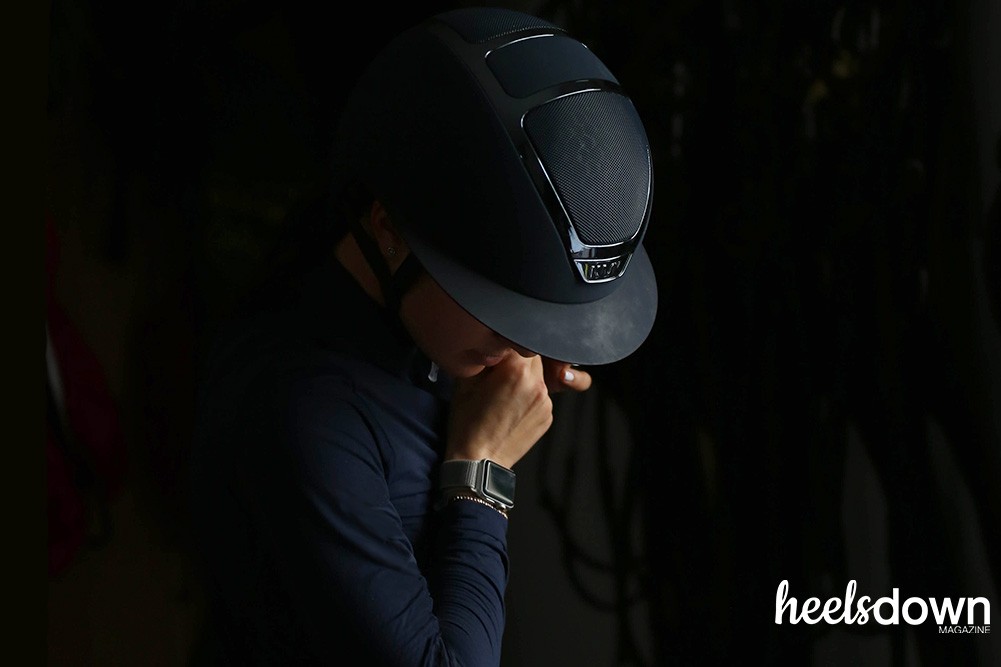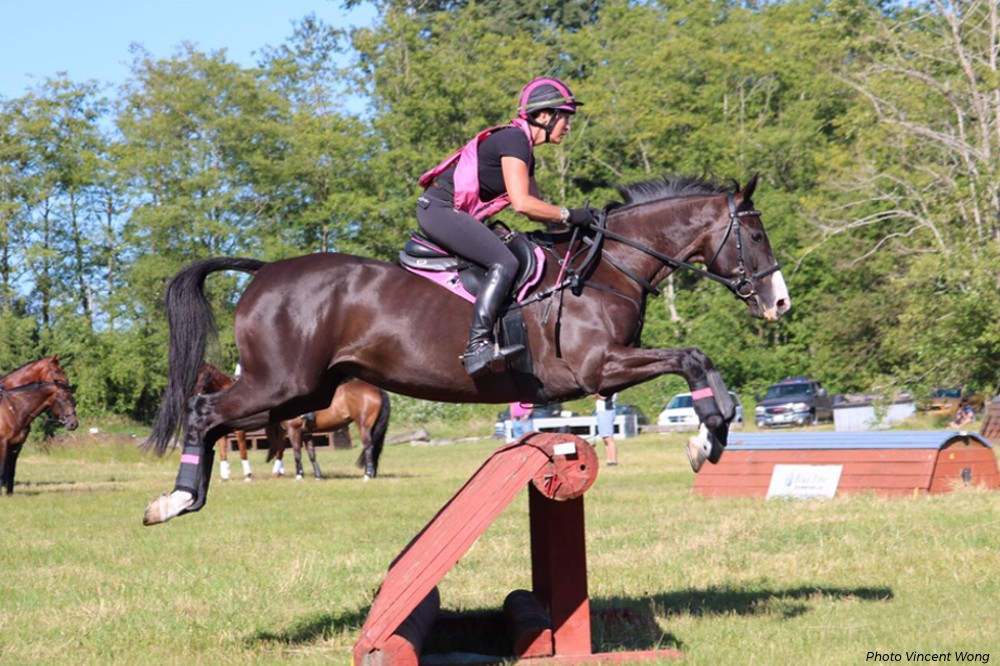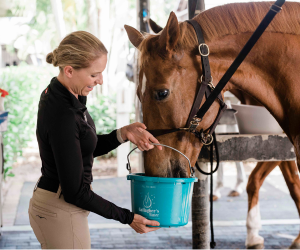One Blow to the Head Can Last a Lifetime

Imagine holding a half-dozen coins in the palm of your hand. Quarters, dimes, pennies. You know what they are but when you try to add them up, your mind goes blank. A dull ache kicks in at the back of your head.
Now you’re staring at the clock, clearly and squarely. You can see the numbers staring back, but your brain can’t register the time no matter how hard you try.
For five months of Chelan Kozak’s life, she couldn’t count numbers. For 152 excruciating days after a traumatic head injury, she didn’t know if she ever would again.
Heels Down Mag is exploring the stories of equestrian athletes who’ve suffered from concussions, and the short and long term effects of the injury on their health and performance. This is the first story in an ongoing series.
As a 20-something advanced event rider, Chelan felt invincible.
She climbed the ranks of the sport quickly, being short-listed for the Canadian Eventing team for the first time at 23. She’d go on to ride many CCI3* and CCI4* courses, with a fearlessness that’s reserved solely for the spirit of eventers. She’d eventually represent Canada at the Olympics and the World Equestrian Games.
“The good ole’ days,” Chelan, now 49, jokes.
But she wasn’t invincible.
In the spring of ‘95, Chelan was piloting a horse around an advanced cross country course in Northern Virginia. The pair galloped toward a fence in the middle of course that required them to jump a solid vertical from a downhill spot.
“This is the type of jump that would absolutely be illegal now,” Chelan recalls.
Her horse seemed a little off in the weeks leading up to this event, but a veterinarian cleared them to compete. Still, Chelan wishes she would have trusted her intuition.
“He clearly didn’t have it in him to get over it,” Chelan said.
The pair flipped over the fence and rolled down the hill.
Cue a sudden and silent darkness, followed by a loud ringing in the ears and a brightness that stings through the eyes. Chelan felt fuzzy when she came around. She had a broken tooth and nose. A pounding ache cut at the back of head.
She’d learn later that she had a hairline fracture in her skull.
“I didn’t get checked out right away because that’s just how it was back then,” Chelan said. In fact, she would go on to compete another horse just two weeks later. “Head injuries weren’t regarded in the same way that they are now.”
But soon, the ill effects of a serious concussion would begin to set in. And it would change her life forever.
“My memory was severely affected,” she explained. “I had no short term memory after that. Still to this day, I don’t.”
She says she’ll run into past clients or colleagues and recognize their faces. But their names remain elusive until they introduce themselves. Five months after the accident, Chelan could finally count numbers again.
Perhaps the most impactful part of her injury is how it changed her personality and the lense through which she views life.
“It’s hard to explain, but I guess I’ve become more detached. I feel like I look at things sideways now instead of more emotionally,” she said. “People dismiss it as me being a bitch. It’s a label I’m used to now. Instead of understanding that this is just how it is, and it’s the result of a traumatic injury.”

Chelan was treated by doctors, but the lasting effects of concussions still largely remain a mystery. An estimated 1.7 million Americans sustain traumatic brain injuries every year, according to the Centers for Disease Control and Prevention. Of those, 52,000 people die. Nearly 80 percent of people with concussions are treated and released from an emergency department with no follow up from a brain or trauma specialist.
And even with the high-profile, mainstream headlines and conversations last year about concussions in major league sports like the NFL (there was even a blockbuster movie called Concussion released last year), doctors still can’t agree on how to diagnose it.
They can agree, however, that a proper diagnosis is critical immediately after a fall or traumatic event to protect the brain from a potential second one, which can exacerbate symptoms and prolong the recovery process.
Following her concussion, Chelan’s routine changed permanently to accommodate her new inabilities. Post-it notes remind herself of daily chores and errands. Her clients that she trains out of her Footnote Farms in South Langley, British Columbia, have learned to deal with it too.
“Clients know to remind me over and over again. They have to follow up. That’s the only way I survive,” she said.
Chelan still rides and trains horses. She’s developing a two-star eventing prospect now. But after spending decades learning to live with the lasting effects of a concussion, her personal safety is of utmost importance now.
“I’m just so much more aware now,” she said about her safety.
She’s smart about choosing when and which horse to ride, and does her best to never put herself in a dangerous position. Most importantly, she said she isn’t in so much of a rush anymore.
“When I was in my 20s, it was hard to slow down because you didn’t want to lose your nerve. You don’t want to miss an opportunity,” she described.
Chelan is adamant about replacing her helmet every couple of years or immediately after a fall. She said she leads by example for her students. She also thinks the introduction of air vests during cross country has helped reduce the risk of whiplash-related concussions.
“It’s scary as hell to go against our natural instinct, which is to protect ourselves, and instead gallop and jump a horse,” Chelan said.
But we do it anyway.
“I remember people telling me not to ride after that bad fall, but I was back in the saddle in just a few days,” Chelan says now, with some regret. “It’s crazy when you think about it now, and everything we know about head injuries. I have friends who are worse off than me from falls and head injuries. I consider myself lucky.”



